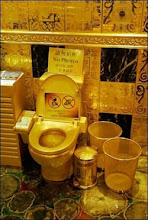
The thing that really struck me when the details of the Josef Fritzl case first came to light was it's implausibility. It's that hoariest of cliches, the one that Tom Wolfe felt obliged to confront when he wrote 'Bonfire of the Vanities': truth really is stranger than fiction.
Nevertheless, when the case first appeared like a genetically-mutated deer in front of the headlight's of the world's media, there were two obvious cultural parallels that sprang to mind. The first was Chan-wook Park’s film Oldboy, a dark, keep-you-guessing thriller, in which a man is arbitrarily imprisoned in a single room for seven years before being released just as arbitrarily.
The other, slightly less explicit, was John Fowles’ 1963 novel The Collector (made into a film two years later by William Wyler), which tells the story of Frederick Clegg, a butterfly collector and city clerk who decides to kidnap the object of his affection – a beautiful art student at Slade – and induce her into loving him. After chloroforming her, Clegg stashes her away in his cellar and, after several aborted escape attempts, the student eventually succumbs to illness (echoes of Kerstin, Elizabeth Fritzl's daughter, the reason Fritzl was finally found out). True story: my mum once told me how disturbed she was when she read Fowles' novel because the lead character not only shared the same name - Miranda - but my mum also happened to be a librarian at the architecture library at UCL, next door to Slade, where the collector stands and observes his victim. The kidnapping itself takes place outside the Everyman cinema in Hampstead, one of her favourite haunts at the time.
As horrific as Fritzl's acts were, they were not entirely alien to us. I think Nicci Gerrard hit the nail on the head when she observed that the Fritzl case was "beyond the wilder shores of our comprehension and yet it fits with an unsettling neatness to a whole set of domestic stereotypes." The idea of a dark flipside to suburbia now seems rather trite - Twin Peaks is virtually a period-piece, and American Beauty seems, if anything, rather glib. In fact, there was even a Desperate Housewives plot involving a son kept chained in the cellar. The notion of the mirror image - above ground, a world of domesticity, family values and good, wholesome fun; downstairs, a subterrean realm of of murky sexuality, pain and torture, is a familiar trope of fiction. The tragedy of Josef Fritzl is that he misunderstood which was which. In his "confession" Fritzl rationalised his actions, claiming that he imprisoned his daughter in her makeshift penitentiary to “protect” her from the damaging influences of the modern world. For Fritzl, the "cellar family" was the utopain idyll, whilst the outside, "real" world was brimming with corruption and prurience.
Nicci Gerrard, 'A monster from the pages of a Grimm tale'
http://www.guardian.co.uk/world/2008/may/04/austria.internationalcrime


No comments:
Post a Comment